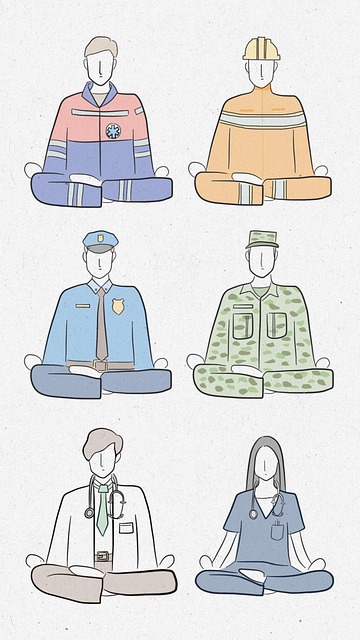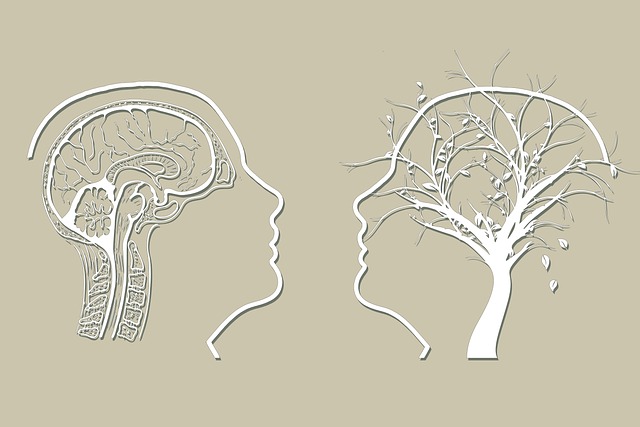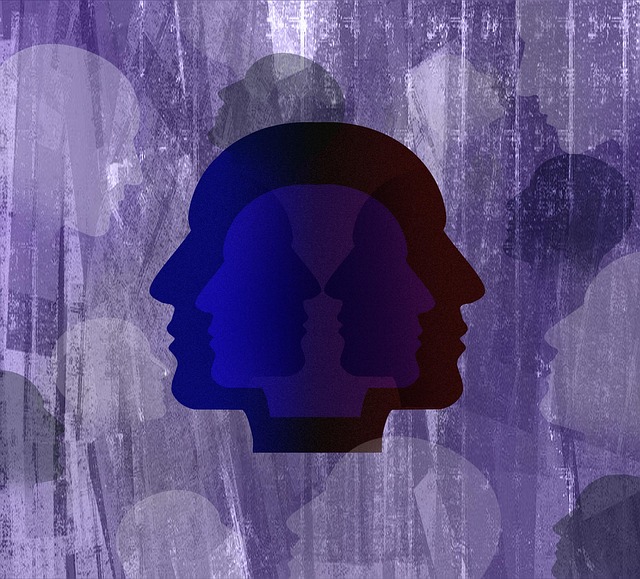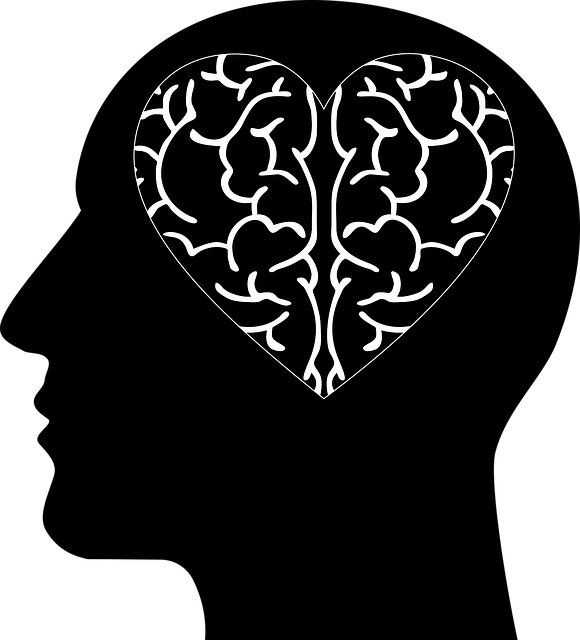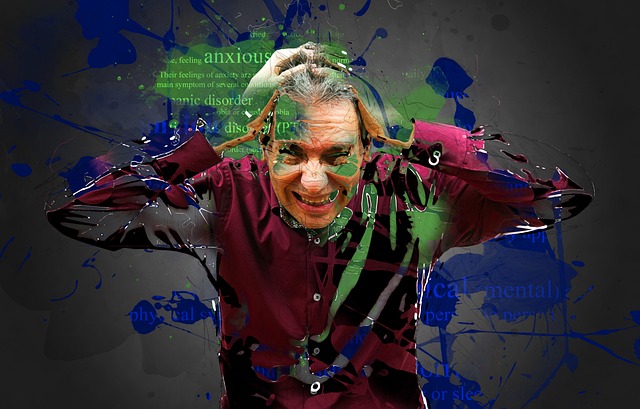Lafayette Dissociative Disorder Therapy (LDDT) offers specialized treatment for complex mental health conditions, particularly dissociation, using evidence-based techniques like mindfulness, CBT, and EMDR. Resilience, crucial for managing dissociative disorders, is enhanced through Resourceful Fronting and Mindfulness (RFM), combining structured mindfulness exercises with therapy. Community outreach programs and mental health policy advocacy support RFM activities, building supportive networks and accessible resources. Personalized RFM approaches in LDDT, considering unique client experiences and cultural sensitivity, foster genuine resilience for effective coping with dissociative disorders.
Discover the transformative power of Lafayette Dissociative Disorder Therapy and its key component, RFM (Resilience, Flexibility, and Mastery), in building resilience. This comprehensive guide explores how RFM exercises enhance coping mechanisms, offering practical strategies for daily life. From understanding the disorder to personalized approaches, we delve into the benefits, challenges, and real-world applications of this innovative therapy. Learn how to implement RFM techniques to foster adaptability and thrive despite life’s setbacks.
- Understanding Lafayette Dissociative Disorder Therapy: A Comprehensive Overview
- The Role of RFM in Resilience Building: Enhancing Coping Mechanisms
- Implementing Resilience Exercises: Practical Strategies for Daily Life
- Benefits and Challenges: Real-World Applications and Overcoming Hurdles
- Personalized Approaches: Tailoring RFM to Individual Needs
Understanding Lafayette Dissociative Disorder Therapy: A Comprehensive Overview

Lafayette Dissociative Disorder Therapy (LDDT) is a specialized approach designed to address complex mental health conditions, particularly dissociative disorders. This therapy model recognizes that dissociation—a disconnect between one’s thoughts, memories, and feelings—is often a coping mechanism for individuals who have experienced trauma. By employing a range of evidence-based techniques, LDDT aims to help clients regain a sense of control and integration, fostering mental wellness and resilience.
The process involves intensive therapy sessions that may include mindfulness meditation practices, cognitive behavioral therapy (CBT), and eye movement desensitization and reprocessing (EMDR). These methods work together to reduce the symptoms associated with dissociative disorders while simultaneously tackling the underlying trauma. Through these comprehensive approaches, LDDT strives to minimize the mental illness stigma by promoting understanding and encouraging individuals on their journey towards healing.
The Role of RFM in Resilience Building: Enhancing Coping Mechanisms

Resilience is a critical component of mental well-being, especially for individuals coping with conditions like Dissociative Disorder, where trauma can significantly impact their ability to navigate life’s challenges. This is where RFM (Resourceful Fronting and Mindfulness) steps in as a powerful tool. By focusing on enhancing coping mechanisms, RFM helps individuals develop strategies to manage distress and promote self-care practices. Through structured exercises, it encourages mindful awareness, fostering a deeper connection with one’s thoughts and emotions.
Integrating RFM into therapy sessions for Lafayette Dissociative Disorder patients can revolutionize their journey towards recovery. Mindfulness meditation techniques teach individuals to stay present, reducing the impact of traumatic memories. Additionally, these practices support burnout prevention, a significant concern for those navigating mental health challenges. Effective resilience building empowers folks to face life’s obstacles head-on, improving overall quality of life and enhancing their ability to adapt and flourish despite adversity.
Implementing Resilience Exercises: Practical Strategies for Daily Life

Implementing resilience exercises is a practical strategy to enhance daily life, especially for individuals managing conditions like Lafayette Dissociative Disorder Therapy. These exercises are designed to help people navigate stressful situations and build mental fortitude. Incorporating them into routines can be as simple as mindful breathing exercises during moments of anxiety or engaging in physical activities that release endorphins to combat stress and improve overall well-being.
Community Outreach Program Implementation can play a significant role in promoting these resilience building activities. By offering support groups, workshops, or even outdoor adventures, communities can foster an environment where individuals learn coping mechanisms and form supportive networks. Mental Health Policy Analysis and Advocacy is also crucial, ensuring that accessible resources and services cater to the needs of those seeking anxiety relief and overall mental health improvement.
Benefits and Challenges: Real-World Applications and Overcoming Hurdles

Implementing Resilience-Building Exercises (RFM) offers a multitude of benefits, particularly for individuals with dissocative disorders like Lafayette Dissociative Disorder Therapy. These exercises foster inner strength development and enhance coping mechanisms, enabling better management of traumatic experiences and symptoms. RFM can improve emotional regulation, social skills training, and empathy building strategies, thereby facilitating smoother interactions in social settings and boosting overall well-being.
However, challenges exist when introducing such practices. Many individuals may struggle with commitment or find it hard to maintain focus during exercises. Overcoming these hurdles requires tailored approaches that cater to individual needs. For instance, integrating RFM into existing therapy frameworks, incorporating engaging activities, and providing consistent support can significantly enhance participation and adherence. By combining effective empathy building strategies and social skills training, professionals can help individuals unlock their potential for resilience and navigate life’s challenges more effectively.
Personalized Approaches: Tailoring RFM to Individual Needs

In the context of Lafayette Dissociative Disorder Therapy, Personalized Approaches are essential to effectively implementing Resilience-Focused (RFM) exercises. Every individual’s journey with dissociation is unique, shaped by their personal experiences and cultural backgrounds. Therefore, tailoring RFM techniques to meet these diverse needs is paramount. Therapists must employ Cultural Sensitivity in Mental Healthcare Practice, considering the specific cultural nuances that influence a client’s understanding of dissociation and resilience. By integrating Communication Strategies that encourage open dialogue and active listening, practitioners can create a safe space for clients to explore their emotions and develop coping mechanisms aligned with their personal narratives.
This individualized approach extends beyond cultural awareness; it involves assessing each client’s level of dissociation, their support systems, and any co-occurring conditions. For instance, a Community Outreach Program Implementation could be adapted to include family members or support groups, ensuring that the exercises resonate with the client’s real-world context. Through these personalized strategies, RFM becomes a powerful tool not just for managing symptoms, but for fostering genuine resilience in individuals navigating the complexities of dissociative disorders.
Lafayette Dissociative Disorder Therapy (LDDT) offers a powerful framework for understanding and treating complex mental health conditions. By integrating the RFM (Resilience, Flexibility, and Mastery) model, therapists can empower individuals to build resilience and enhance their coping abilities. The practical strategies outlined in this article provide a roadmap for implementing RFM exercises in daily life, offering tangible benefits and addressing challenges faced by both practitioners and clients. Through personalized approaches that cater to individual needs, LDDT combined with RFM has the potential to revolutionize mental health support, enabling folks to navigate life’s storms with greater resilience and grace.



